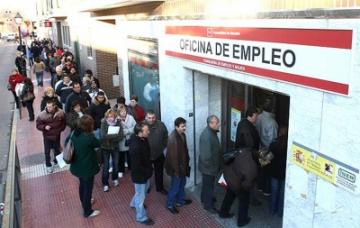Spain might become the next country in the EU to introduce its own workfare scheme. The government is planning to introduce a compulsory work program for the unemployed. The workers on the program would be paid the official minimum wage but the placements aren’t voluntary and don't have to be connected to the person’s normal trade. The work could last as long as the person has entitlement to claim the dole.
Work done on the scheme would not count towards social security payments, which is an important issue, as benefits in Spain are tied to these payments and many people have serious problems because of not having made enough payments when losing their jobs. People are entitled to four months benefit after working for a year full time, up to a maximum of two years receiving benefits, but due to the prevalence of black economy work and employers refusing to register their workers, many people work for years without becoming eligible. There is no extra allowance for children. Often entire families are living on one adult’s unemployment benefits. Unemployment is currently at 34% in some regions.
States in the Eurozone are in a race to the bottom to reform their labour laws and show “flexibility” and to prove their commitment to austerity. The regional governments, many of whom are deeply in debt, will try to use this to reduce labour costs, meaning there are even fewer real jobs available, for example those regions damaged by forest fires this summer want to send unemployed people to clear the fire damage, a skilled and difficult job.
Mon, 10/09/2012 - 15:35
Workfare in Spain
Recent articles
This article was published on 10 September 2012 by the SolFed group in North London. Other recent articles:
Other Posts
| SolFed North London - Open Meeting on the 23rd of November 2-4pm (posted 12. November) |
| Tue 26th Nov 7pm London - Reading Group 05 – Anarchism and The Black Revolution (posted 9. November) |
| Tue 29th Oct 7pm London - Reading Group 04 – Palestine, Mon Amour (posted 1. October) |
| Tue 24th Sep 7pm London - Reading Group 03 – Practical Pamphlets - Workmates, Anarcho-Syndicalism in Puerto Real (posted 4. September) |
| Tue 27th Aug 7pm London - Reading Group 02 – Fighting for Ourselves, by SolFed IWA (posted 31. July) |
